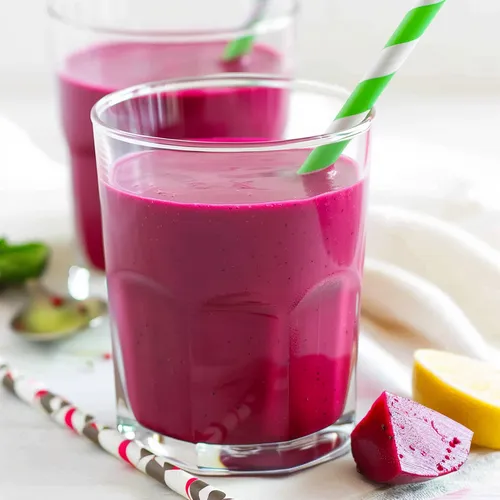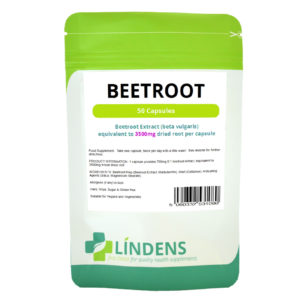It’s a common problem.
As many a 7 million people in the UK are living with high blood pressure. Many of those people are not even aware that they have it. Many are unaware of the risks that go with high blood pressure.
Cardiovascular disease, heart attacks, strokes. All of these things can be caused by high blood pressure.
If only there was a natural way of lowering blood pressure? Some thing that did not involve taking drugs.
Well maybe there is.
Let me tell you about Beetroot …..
Why We Need to Worry about High Blood Pressure
It’s a killer.
High blood pressure is a major risk factor for developing cardiovascular disease, which can lead to heart attacks or strokes.
In the UK each year there are 175,000 heart attacks. That’s one every three minutes. Stroke causes more than 40,000 deaths in this country every year.
What Is Beetroot? Is it a Superfood?
Beetroot is a root vegetable grows mostly underground. It also has a leafy part that grows above ground. It is found in the tropical and temperate regions of the world.
For a long time beetroot has been thought to be a superfood.
Beetroot is in addition abundant in vitamin C, vitamin A and iron.
- Vitamin C enhances the immune system.
- Vitamin A is essential for mucous membrane, healthful skin and great eyesight.
- Iron is a crucial mineral for producing red blood cells within the body.
Beetroot also includes folates that help DNA synthesis within the cells. The dietary fibre in beetroot helps to reduce the conversion into glucose, thereby making it an excellent food for anyone with Type-2 diabetic issues.
The fibre will even help to cut down cholesterol. The nitrates in beetroot additionally expand blood vessels to increase physical exercise and athletic performance. Beetroot also has silica, which helps to fortify bones and hair, and to keep up beautiful skin.
How Can Beetroot Help to Lower High Blood Pressure?
According to research carried out at Queen Mary University of London. A daily cup of beetroot juice may greatly reduce the blood pressure of people with high blood pressure.
The experiment studied 64 volunteers, provides the first evidence of a long-lasting reduction in blood pressure by supplementing the diet with nitrates in patients with high blood pressure.
Patients with high blood pressure who drank just 250ml of beetroot juice each day managed to get their levels back to ‘normal’ after taking part in th experiment.
The research studied 64 patients with high blood pressure. and could be the provide the first clear evidence of a long-lasting reduction in blood pressure by supplementing the diet with a chemical called nitrates.
Nitrates are found in high quantities in beetroot, and other leafy green vegetables like kale and cabbage.
Beetroot provides many nutrients which are essential for overall health. Beetroot also has calcium, potassium, magnesium, sodium and dietary nitrate. Potassium reduces the heart rate and controls metabolic functions. Magnesium and sodium assist with correct fluid amounts in the body. The dietary nitrate in beetroot is connected to decreased blood pressure levels as well as a decreased likelihood of cardiovascular disease.
Fancy a Beetroot Latte?
Undiluted beetroot juice has many known benefits for health, including assisting blood flow, dilating blood vessels and enhanced nitric oxide production. Many people choose a beetroot latte when trying to cut down on caffeine whilst boosting their intake. A well made beetroot latte, as our photo shows, can be a thing of beauty!
Why a Beetroot Supplement Can Help
This all sounds great. But who has time to make fresh beetroot juice in the morning? Also, for many the taste of beetroot makes it a no-go.
That’s why a beetroot supplement is great for many.
Supplements of beetroot extracts come in pill form for those who don’t like the beetroot taste or don’t have the time to make the beet juice or cook them. You still get all the nutritional benefits of the beetroot in a convenient form.
Just 2 capsules per day is equivalent to a large glass of beetroot juice. (Each capsule provides +/- 100mg dietary nitrate.)
Beyond Blood Pressure: Other Benefits of Beetroot
While the blood pressure-lowering effects of beetroot are well-documented, this superfood offers a host of other health benefits that make it a nutritional powerhouse. Let’s explore some of the ways beetroot can boost your overall well-being.
Boosting Exercise Performance
If you’re an athlete or simply someone who enjoys physical activity, beetroot can be your secret weapon. The nitrates in beetroot have been shown to improve oxygen use and increase stamina during exercise. By dilating blood vessels and promoting better blood flow, beetroot can help you push harder and longer during your workouts.
In one study, cyclists who consumed beetroot juice experienced a 16% improvement in their time trial performance compared to those who didn’t. Whether you’re training for a marathon or simply want to enhance your gym sessions, adding beetroot to your diet could give you the extra edge you need.
Supporting Brain Health
The nitrates in beetroot don’t just benefit your cardiovascular system; they may also have a positive impact on your cognitive function. Researchers have found that beetroot juice can increase blood flow to the brain, potentially improving cognitive performance and protecting against age-related cognitive decline.
Additionally, beetroot is rich in folate, a B-vitamin crucial for brain development and function. Folate deficiency has been linked to an increased risk of depression and cognitive impairment, making beetroot an excellent source of this essential nutrient.
Fighting Inflammation
Chronic inflammation is at the root of many health issues, including heart disease, cancer, and autoimmune disorders. Beetroot contains powerful anti-inflammatory compounds, such as betalains, which have been shown to help reduce inflammation throughout the body.
By incorporating beetroot into your diet, you may be able to mitigate the damaging effects of chronic inflammation and lower your risk of developing various inflammatory conditions.
Enhancing Liver Health
Your liver plays a crucial role in detoxification and metabolic processes. Beetroot contains betaine, a compound that helps protect the liver from oxidative stress and inflammation. Studies have suggested that betaine may even help prevent or slow the progression of non-alcoholic fatty liver disease (NAFLD), a condition that affects millions of people worldwide.
Incorporating Beetroot into Your Diet
Now that you know the multitude of benefits beetroot offers, you may be wondering how to incorporate it into your diet. Here are a few delicious and creative ways to enjoy this superfood:
- Juice it: Fresh beetroot juice is a concentrated source of nutrients and can be easily consumed on its own or added to smoothies.
- Roast it: Roasted beetroots make a delicious side dish, especially when drizzled with a little balsamic vinegar and sprinkled with feta cheese.
- Pickle it: Pickled beetroots are a tangy and flavourful addition to salads, sandwiches, and veggie platters.
- Blend it: Add raw or cooked beetroots to your favourite soups or dips for a vibrant color and earthy flavour.
Remember, mixing it up is important when it comes to a healthy diet. Try different ways to incorporate beetroot into your meals so that you keep the menu varied.
What to Do Now
If your blood pressure is continually higher than the recommended level, this means that you have high blood pressure, also known as hypertension.
High blood pressure rarely has noticeable symptoms. This is why is is often called the ‘silent killer’.
Having your blood pressure measured is the only way of knowing. We should all get our blood pressure checked at least every five years
If you haven’t had your blood pressure measured recently, ask your GP to check it for you.
Photo “Beetroot Smoothie” by Anthony Cunningham for Zoom Health
Zoom Health is a leading UK supplier of Home Health Tests and Earplugs






